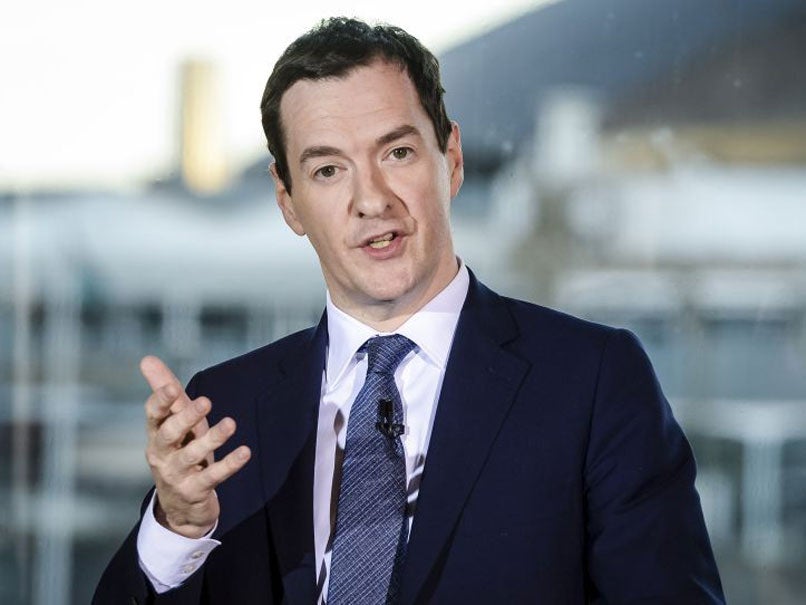Brexit: What leaving the EU would really mean for your pocket
As EU referendum opponents hurl misleading stats and confusing spin around, David Prosser seeks clarity on what leaving would really mean for our money from economies that have already broken away

Will your household income really fall by £4,300 in the event the UK votes to leave the European Union, as George Osborne has appeared to claim? The short answer is no. What the Chancellor actually meant was that in the event of a Brexit, the UK economy would miss out on growth worth an average of £4,300 to each of Britain’s 27 million households - and the precise numbers are in any case pretty questionable.
That is not to say Osborne is necessarily wrong to give the impression that people will be worse off if Britain votes to leave. There will be discernible impacts on people’s household finances – it’s just not clear what they will yet be. All we know for sure is that Article 50 of the Lisbon Treaty specifies a two-year period for a country quitting the EU to negotiate a new relationship with the bloc; the outcome of those negotiations will determine how Britons are affected.
To get a better idea of what is likely to happen, it makes sense to see how others have got on. The problem is that they are few and far between. The only country to have ever left the EU is Greenland (to split hairs, part of the Danish realm rather than a nation state), which voted to walk away in 1982. Brexiteers will point out that the Arctic country has subsequently seen average income levels rise above those in the UK.
The comparison is hardly fair, however, given the relative size and complexity of the UK economy compared to that of Greenland; fishery policy was the key issue in its referendum on continued EU membership and for a country so dependent on this industry, the downsides of EU-wide regulation completely outweighed any possible benefits of staying in.
The 13 cheapest destinations for a beach holiday in Europe
Show all 13Is there more we can learn from history? Well, one thing we do know is that a falling pound is likely to have an appreciable effect on inflation as foreign goods become more expensive – the sharp fall in the pound seen during 2007 and 2008, for example, was one of the most significant factors in the spike in inflation, to above five per cent for a short period around the same time.
This is important because the majority of economists argue that Brexit would result in a fall in the value of the pound in the months following the vote – Nomura’s estimate is for a 15 per cent drop while Goldman Sachs reckons it will be more like 20 per cent. And since inflation is bad news for standards of living as your money doesn’t go so far, that’s a worrying precedent. All the more so if higher inflation prompts the Bank of England to raise interest rates, with a subsequent increase in mortgage costs.
Potentially even more significant is the impact of leaving the EU on employment – losing your job obviously affects your finances. Here too the arguments are nuanced – Brexit supporters complain that the remain campaign’s claims of 3 million jobs being at risk are outlandish. In that context, it’s interesting to note that 2014’s referendum on Scottish independence appeared to have no discernible impact on investment in the country’s economy, which is so crucial to job creation, despite fears about political instability. Indeed, foreign direct investment in Scotland was actually higher over the year according to EY.
Finally, there is one other way to apply the lessons of history to the debate over EU membership. There is a considerable body of evidence that Britain’s decision to join the EEC in 1973 has had a very positive impact on household finances. In the previous 25 years, gross domestic product per household – the statistic on which the Chancellor now focuses – had risen by 95 per cent in France, West Germany and Italy, but by only 50 per cent in Britain. Since 1973, however, that comparison has reversed and by 2013 Britain was more prosperous than the average of these three rivals for the first time since 1965.
That doesn’t prove cause and effect – many right-wing campaigners for Brexit would argue that these figures prove nothing other than that Margaret Thatcher’s term in office was transformative for people’s personal finances. But it’s an interesting case study to think about.
The reality, however, is that while we naturally look to historical precedent in these arguments because it’s easier to look back at what’s gone before than to imagine the future, doing so will only get us so far. A Brexit would be a shock to the system – for good or bad – unlike anything we’ve seen in recent history.
Subscribe to Independent Premium to bookmark this article
Want to bookmark your favourite articles and stories to read or reference later? Start your Independent Premium subscription today.

Join our commenting forum
Join thought-provoking conversations, follow other Independent readers and see their replies